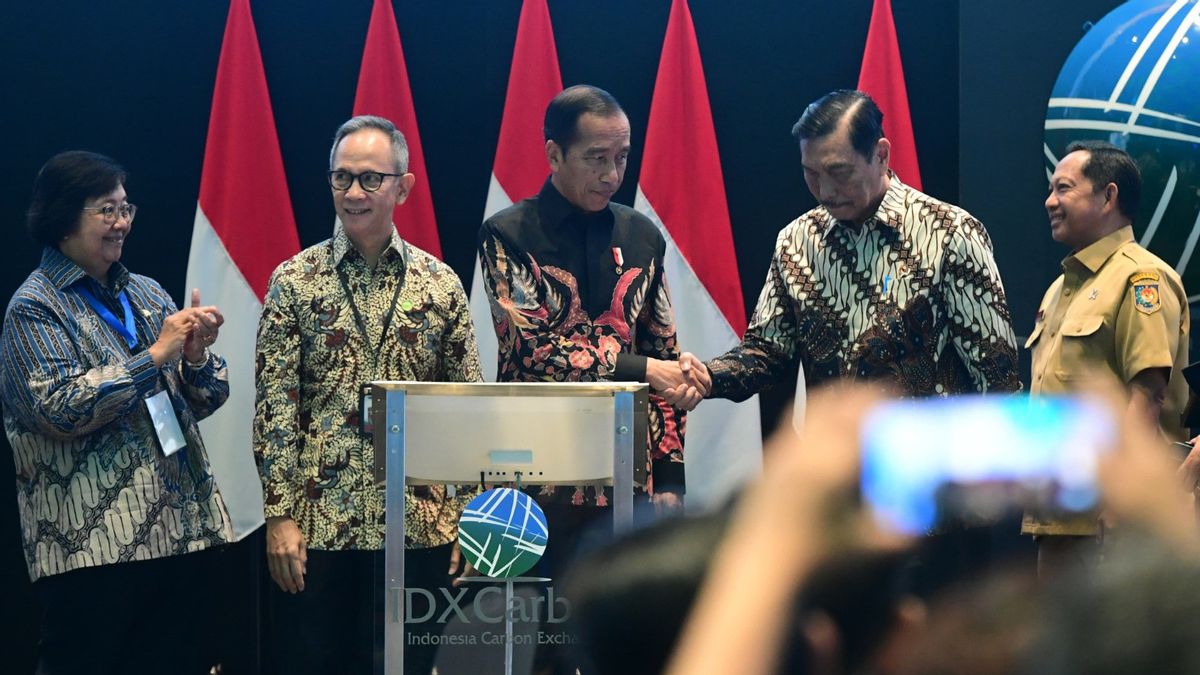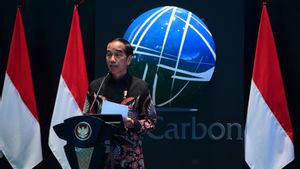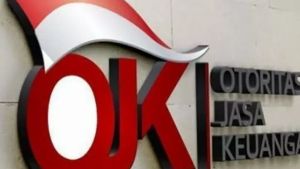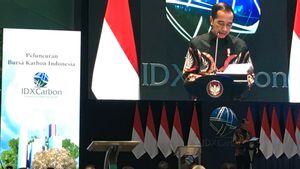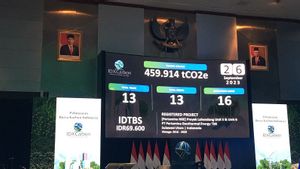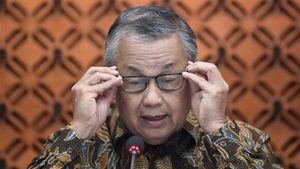JAKARTA - Coordinating Minister for Maritime Affairs and Investment (Menko Marves) Luhut Binsar Pandjaitan emphasized that Indonesia must become a regional carbon market hub.
Luhut explained that the implementation of the Indonesian Carbon Exchange would be directly supervised by the OJK using blockchain technology and using quality carbon units which would be run in stages starting from the domestic market and would be developed for overseas carbon market trading as well as as a regional carbon market hub.
"Mr. President, we report that we must become a regional market hub so that carbon units are available according to international standards and we will work with international standards," said Luhut when delivering his report at the launch of the Carbon Exchange on the Indonesia Stock Exchange, Tuesday 26 September.
For this reason, said Luhut, it is necessary to accelerate mutual recognition arrangements so that the carbon exchange registration process can take place more quickly.
Luhut continued, currently the government still has numbers of homework that must be completed, namely finalizing the sector carbon trading road map and carbon tax.
"We want to finish this immediately and depart from the results of the last meeting," added Luhut.
Apart from that, the implementation of the Minister of Environment and Forestry Regulation implementing the NDC and the Minister of Environment and Forestry Regulation regarding foreign carbon trading and the PMK regarding Carbon Tax still have to be monitored.
"Next, we will improve the national recording system or SRN-PPI and its integration with the existing system so that transparency objectives can be achieved well," continued Luhut.
Just so you know, the carbon exchange is a medium for buying and selling carbon credits in the form of certification or permits to produce carbon dioxide emissions.
The trading technique is that companies that produce small amounts of carbon dioxide emissions sell carbon credits to companies that produce a lot of carbon dioxide.
The Carbon Exchange is carbon trading regulated through the Financial Services Authority Regulation (POJK).
The goal is Indonesia's big effort to reduce Greenhouse Gas (GHG) emissions through managing the economic value of carbon.
There are two types of carbon markets, namely the Voluntary Carbon Market which is not supervised by the government, and the Mandatory Carbon Market which is supervised by the government.
VOIR éGALEMENT:
In Indonesia, the rules regarding carbon trading through the Carbon Exchange are based on two Financial Services Authority (OJK) Regulations, namely POJK Number 14 of 2023 concerning Carbon Trading through the Carbon Exchange.
Then, OJK Circular Letter (SEOJK) Number 12/SEOJK.04/2023 concerning Procedures for Organizing Carbon Trading Through the Carbon Exchange.
The English, Chinese, Japanese, Arabic, and French versions are automatically generated by the AI. So there may still be inaccuracies in translating, please always see Indonesian as our main language. (system supported by DigitalSiber.id)
